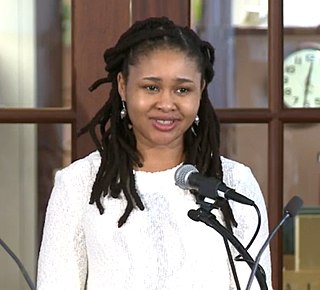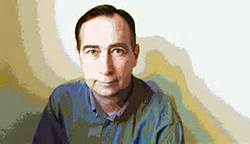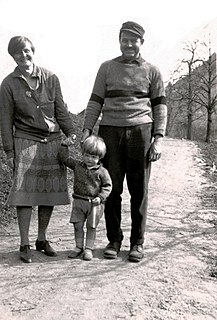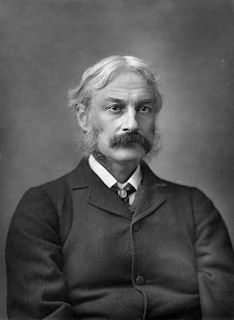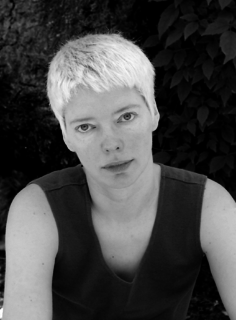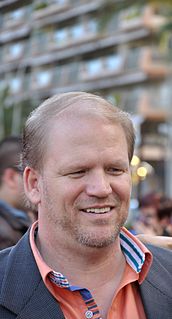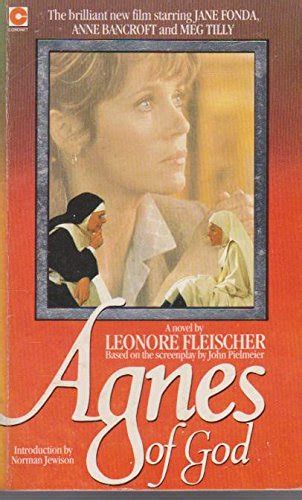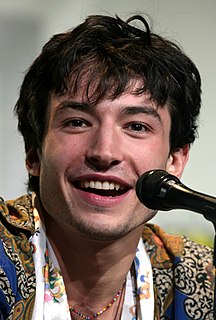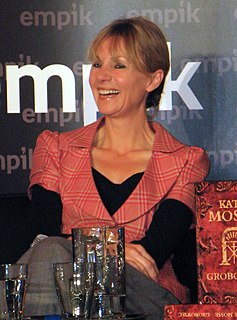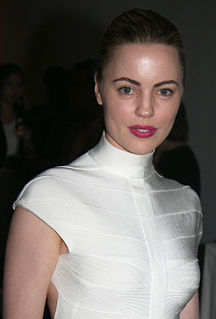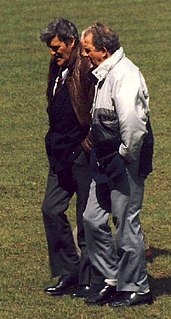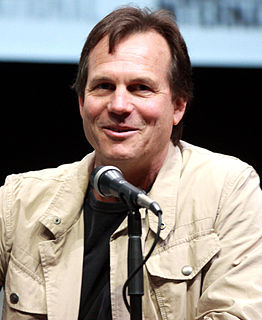Top 1200 Reading The Bible Quotes & Sayings - Page 17
Explore popular Reading The Bible quotes.
Last updated on November 28, 2024.
If the Bible is not the Word of God and inspired, the whole of Christendom for 1800 years has been under an immense delusion; half the human race has been cheated and deceived, and churches are monuments of folly. If the Bible is the Word of God and inspired, all who refuse to believe it are in fearful danger; they are living on the brink of eternal misery. No man, in his sober senses, can fail to see that the whole subject demands most serious attention.
I realized that for many people attending a reading is like watching television at the end of a long day. They don't want to be sad but to laugh. Chances are they'll pick the sitcoms over the horror movies. So I learned that, while one's larger body of fiction can have quite a bit of sadness and conflict and tragedy in it , in a reading environment, the average audience member seems able to tolerate only a little bit of sadness. They'd much rather the reading be sexy, funny, and witty. Life is hard these days. There's more than enough sadness in the world, so I can't blame them.
I write for people who aren't Christians. I write for non, new, and nominal Christians who are curious about the Bible and Christianity. They're like New York City. If I can make it there, I can make it anywhere. If I can write a book about the Bible that's engaging enough to attract people who aren't even Christians, I'm betting Christians will want to read it, too.
The Bible indicates that for three days, Jesus went into the very depths of hell. Right into the enemy's own territory. And He did battle with Satan face to face. Can you imagine what a show down that was? It was good vs. evil. Right vs. wrong. Holiness vs. filth. Here are the two most powerful forces in the universe have come together to do battle for the first time in history. But thank God. The Bible says, "Satan was no match for our Champion". This was no contest.
Reading things that are relevant to the facts of your life is of limited value. The facts are, after all, only the facts, and the yearning passionate part of you will not be met there. That is why reading ourselves as a fiction as well as fact is so liberating. The wider we read the freer we become.
I started going to Bible school really early in life. Being raised a Jehovah's Witness, I had to read the Bible over and over. These stories were so horrifying and really difficult to reconcile. For me, Noah wasn't the story of the graham cracker box with the little animals it was horrifying. I would ask the same questions as a child. "Well, what about the little kids? What about the dogs and cats?"
I do think that the imagination you create yourself when you're reading, to create the tone and the accent of the world, is an individual accomplishment that someone is imposing upon you by listening to them read it. Because you're listening to their interpretation, and their emphasis would probably be different from the one that your brain makes while you're reading it.
Two kinds of reading can be distinguished. I call them reading like a reader and reading like a writer ... when you read like a reader, you identify with the characters in the story. The story is what you learn about. When you read like a writer, you identify with the author and learn about writing.
But, you have to watch them in order. That's very important because, as it turns out, stories have to be told in order. It's like reading a novel. There are times when it's tiring. And then, you get hooked and it's a page-turner, and you really want to keep reading. I do think there will be some fatigue that sets in.
Since I started as a comic person then became a musician to me it was interesting because I have this really great, interesting fanbase that's really smart and energetic and uh how could I steer them towards a medium that shaped who I was? You know, steer them toward comics. That was really the goal, to bring a lot of readers cuz they were reading a lot of comics but most of them hadn't been reading American comics, they'd be reading manga sitting on the floor of a Barnes and Noble.
I don't actually have a one wellspring of inspiration. Though I'm most often inspired while reading - both fiction and nonfiction. I subscribe to National Geographic, Scientific American, Discover, and a slew of other magazines. And it is while reading articles for pleasure and interest that an interesting 'What if?' will pop into my head.
You live in a society that is shaped in every possible way by the Bible. The language you use, the laws you obey (and disobey), the founding principles of your nation, the disputes about abortion, homosexuality, adultery - these and so much else in your world are rooted in the Bible. You don't have to read it for its truth value. You should read it to understand how your world got the way it is, the way you would read the constitution or Shakespeare.
The Bible is interpreted by the Talmud. Except, in Rabbinic tradition, a Talmudic law has the weight of the Biblical law. Sometimes we say in a prayer, "Blessed are Thou, O God, who has ordered us and commended us," to do something. But you don't find that "something" in the Bible; you find it in the Talmud. So Talmudic law becomes as important as Biblical law.
Reading is the subtle and thorough sharing of the ideas and feelings by underhanded means. It is a gross invasion of Privacy and a direct violation of the Constitutions of the Third, Fourth, and Fifth Age. The Teaching of Reading is equally a crime against Privacy and Personhood. One to five years on each count.
Freedom is a need of the soul, and nothing else. It is in striving toward God that the soul strives continually after a condition of freedom. God alone is the inciter and guarantor of freedom. He is the only guarantor. External freedom is only an aspect of interior freedom. Political freedom, as the Western world has known it, is only a political reading of the Bible. Religion and freedom are indivisible. Without freedom the soul dies. Without the soul there is no justification for freedom. Necessity is the only ultimate justification known to the mind.
In the sixties, in the middle sixties, suddenly comics became this hip thing, and college students and hippies were reading them. So I was one of them, and I started reading, basically it was the Marvel Renaissance at that point. It was all their new characters, Spiderman and the X-Men and the Fantastic Four.
What is the Bible in your house? It is not the Old Testament, it is not the New Testament, it is not the Gospel according to Matthew, or Mark, or Luke, or John; it is the Gospel according to William; it is the Gospel according to Mary; it is the Gospel according to Henry and James; it is the Gospel according to your name. You write your own Bible.
You never know what you're in for when you take a role. When you're reading the script, you're in some café in New York and you're loving life and it sounds great because it's like reading a book. When you step into that book and you actually have to play it out, for real, it's a totally different ball game.
The book was long, and difficult to read, and Klaus became more and more tired as the night wore on. Occasionally his eyes would close. He found himself reading the same sentence over and over. He found himself reading the same sentence over and over. He found himself reading the same sentence over and over.
If you can imagine the story of the world as a giant movie, to not have some understanding of the Bible - its story, its history, and its impact - would be like watching a great movie and removing part of the plot. It can't be done. The real truth is that everyone regardless of faith tradition benefits from knowing and understanding these aspects of the Bible. It enhances one's knowledge of literature, science, art etc. It's difficult to read any classic work of literature for instance and not see biblical allusions.
Some people spend their entire lives reading but never get beyond reading the words on the page, they don't understand that the words are merely stepping stones placed across a fast-flowing river, and the reason they're there is so that we can reach the farther shore, it's the other side that matters...
There are many persons of combative tendencies, who read for ammunition, and dig out of the Bible iron for balls. They read, and they find nitre and charcoal and sulphur for powder. They read, and they find cannon. They read, and they make portholes and embrasures. And if a man does not believe as they do, they look upon him as an enemy, and let fly the Bible at him to demolish him. So men turn the word of God into a vast arsenal, filled with all manner of weapons, offensive and defensive.
People interpret things through their owns lens, just the way they do the Bible. You can find justification for just about everything in the Bible. I think man has got a great ego when it comes to his God, whatever that is. It just seems to me that someone who wants to take on God's punishment, it just seems a huge egoism to think that he should appoint himself to take care of God's punishments.
Some, in their curiosity, will say, "But you Mormons have another Bible! Do you believe in the Old and New Testaments?" I answer we do believe in the Old and New Testaments, and we have also another book, called the Book of Mormon. What are the doctrines of the Book of Mormon? The same as those of the Bible.


